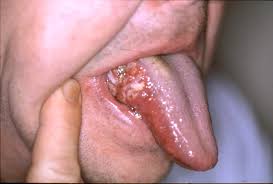India is grappling with a significant burden of oral cancers, contributing to approximately 30 per cent of all global cases, medical experts revealed on Tuesday. This revelation comes as April marks Oral Cancer Awareness Month, shedding light on a pressing public health issue in the country.
Oral cancer, also known as mouth cancer, encompasses malignancies affecting the mouth and the back of the throat, constituting the most prevalent form of head and neck cancer. While historically associated with older adults, there is a concerning trend of early onset, according to Dr. Sowrabh Arora, Senior Director of Surgical Oncology (Head & Neck) at Max Hospital, Vaishali.
“Oral cancer poses a significant health threat in India, ranking as the second most common cancer overall and the leading cancer among males. Annually, over 100,000 new cases are diagnosed, with a disturbing rise observed among young adults,” Dr. Arora stated.
Dr. Mohit Saxena, Senior Consultant in Medical Oncology at Marengo Asia Hospital, Gurugram, underscored the urgency of the situation, noting that approximately 70 per cent of cases are diagnosed at advanced stages, complicating treatment efforts.
The surge in oral cancer incidence is predominantly attributed to tobacco use, betel nut chewing, or smoking, which collectively account for 80-90 per cent of cases. Other contributing factors include excessive alcohol consumption, human papillomavirus (HPV) infection, weakened immune system, poor nutrition, excess body weight, and prolonged sun exposure.
“This underscores the critical need for awareness campaigns and preventive measures to combat the escalating prevalence of oral cancer, especially among the younger demographic, and to address its underlying causes,” emphasized Dr. Arora.
The medical professionals urged vigilance in recognizing symptoms for early detection and improved outcomes. These symptoms include persistent mouth ulcers, red or white patches, intraoral swelling or lumps, difficulty swallowing, hoarseness of voice, neck or throat swelling, and unexplained weight loss.
Dr. Saxena advocated for prevention strategies such as abstaining from tobacco and alcohol, practicing safe sex to minimize HPV exposure, using sunscreen to mitigate sun damage, and undergoing regular oral screenings for early detection.
As India grapples with the mounting challenge of oral cancer, concerted efforts in awareness, prevention, and early detection are imperative to alleviate the burden of this debilitating disease on public health.












